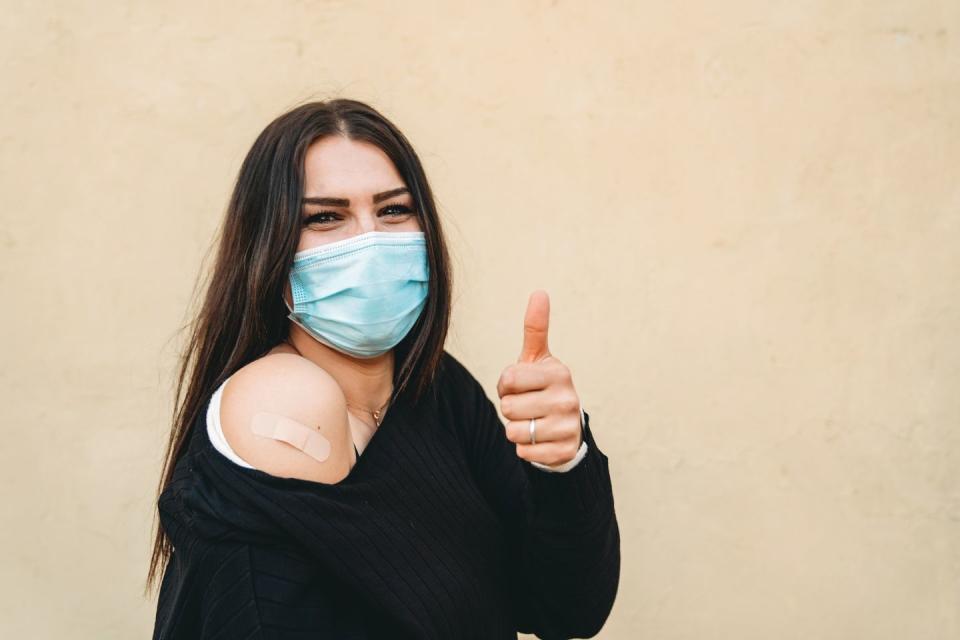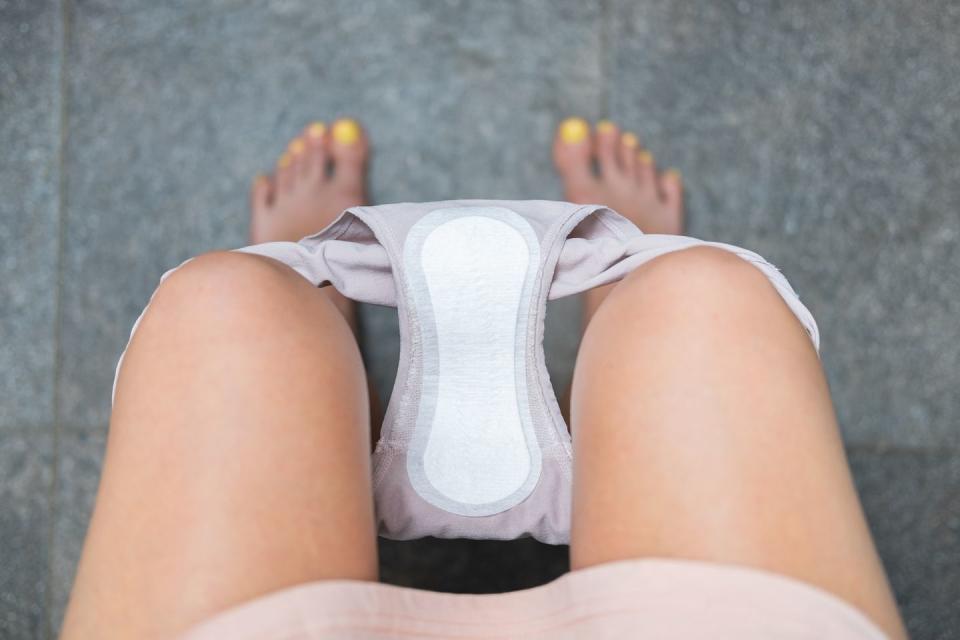4,000 women have noticed period changes following COVID vaccine

By now, the COVID vaccination roll-out is well underway in the UK. More than 43 million adults across the nation have received their first vaccine, while millions more have had both doses and are well on their way to peak immunity.
If you're still awaiting your invitation, you may have some understandable anticipation about what the side effects of a coronavirus vaccine might be. There have been varying reports of side effects following the different jabs on offer in the UK - ranging from changes to periods and menstrual cycle, to nausea and fatigue.
What are the most common side effects of the COVID vaccine?
One study which researched the most widely available vaccines - the Oxford/Astrazeneca and the Pfizer vaccines - suggests there are three particularly common symptoms suffered as a result. Carried out by the National Institute for Health Research in conjunction with the ZOE COVID Symptom Study app, the research showed that reported side-effects of the vaccines tended to be "minor in severity and of short duration." The most likely ailments, it emerged, were a sore arm, headache, and fatigue.
The ZOE COVID Symptom Study app asked its users to answer some questions about how they felt following the vaccine. The research discovered that 25.4% of vaccinated app users reported having one or more 'systemic adverse effect' (a symptom that affects the whole body), and 66·2% users reported experiencing one or more 'local adverse effect' (a symptom localised to the area of the injection).

"The most commonly reported systemic side-effects were fatigue and headache overall," read the study notes. "These were most frequently reported within the first 24 [hours] after vaccination and lasted a mean of 1·01 days." It was also found that headache and fatigue were more common in women than in men, and occurred more often in people aged 55 or younger.
Meanwhile, "tenderness and local pain around the injection site were the most frequently reported local effects, occurring most often on the day after injection and lasting a mean of 1·02 days," the published study explained. Other, less common side-effects detected in the research included allergic skin reactions such as skin burning, rashes, and red welts on the lips and face.

What's particularly interesting from the findings, too, is that individuals with a known previous case of coronavirus were shown to be more likely to have adverse effects after the first dose of the vaccine, in comparison to people who didn't have a previous confirmed case of COVID.
Can the COVID vaccine impact your period?
Aside from these perhaps more obvious symptoms, people are also reporting a change in their periods after the vaccine. In fact, The Times reports that the UK's Medicines & Healthcare products Regulatory Agency (MHRA) received more than 4,000 reports of this, most commonly from women in their 30s and 40s. The MHRA found that the biggest change appeared to be "heavier than usual" bleeding, with the Astra Zeneca yielding most reports of menstrual changes (2,734 up to 17 May), followed by Pfizer (1,158 reports) and also Moderna (66 reports in the same time frame).

This isn't the first indicator we've had that the COVID vaccine may impact menstrual cycles. Dr Kate Clancy, a medical anthropologist from the States, posted on Twitter back in February about having an unusually heavy period after she got the Moderna vaccine, and several others responded to share their own similar experiences. Included in this mix were a number of trans men and post-menopausal women who don't normally have periods, who said they had experienced bleeding after their COVID vaccine. As a result of the response the tweet got, Dr Clancy and her former colleague Dr Katharine Lee have created a survey to gather more formal data on the side effect.
While there's no official research or conclusions on how the COVID vaccine might impact the menstrual cycle, reproductive immunologist at Imperial College London, Dr Victoria Male, spoke to the BBC to hazard an educated guess. Because the uterus lining is part of the immune system, and immune cells play a role in the creating, maintaining and shedding of the womb lining, it may be that the vaccination creates 'chemical signals' that could affect immune cells in various different parts of the body, triggering an unusually heavy or unexpectedly bleed. If this is the case, it's not believed to be of any significant or long-term harm.
There's still a lot that's unknown about the COVID vaccines and how it might affect individuals, but widespread research is being conducted. If you're nervous about getting the vaccine, remember that they have all been subject to extensive clinical trials, as any other immunisation is. Any minor side effects are deemed normal, and the inconvenience will surely be worth it in the long run when you develop immunity to the virus that has wrecked so many lives.
The information in this story is accurate as of the publication date. While we are attempting to keep our content as up-to-date as possible, the situation surrounding the coronavirus pandemic continues to develop rapidly, so it's possible that some information and recommendations may have changed since publishing. For any concerns and latest advice, visit the World Health Organisation. If you're in the UK, the National Health Service can also provide useful information and support, while US users can contact the Center for Disease Control and Prevention.
Follow Cat on Instagram.
You Might Also Like


